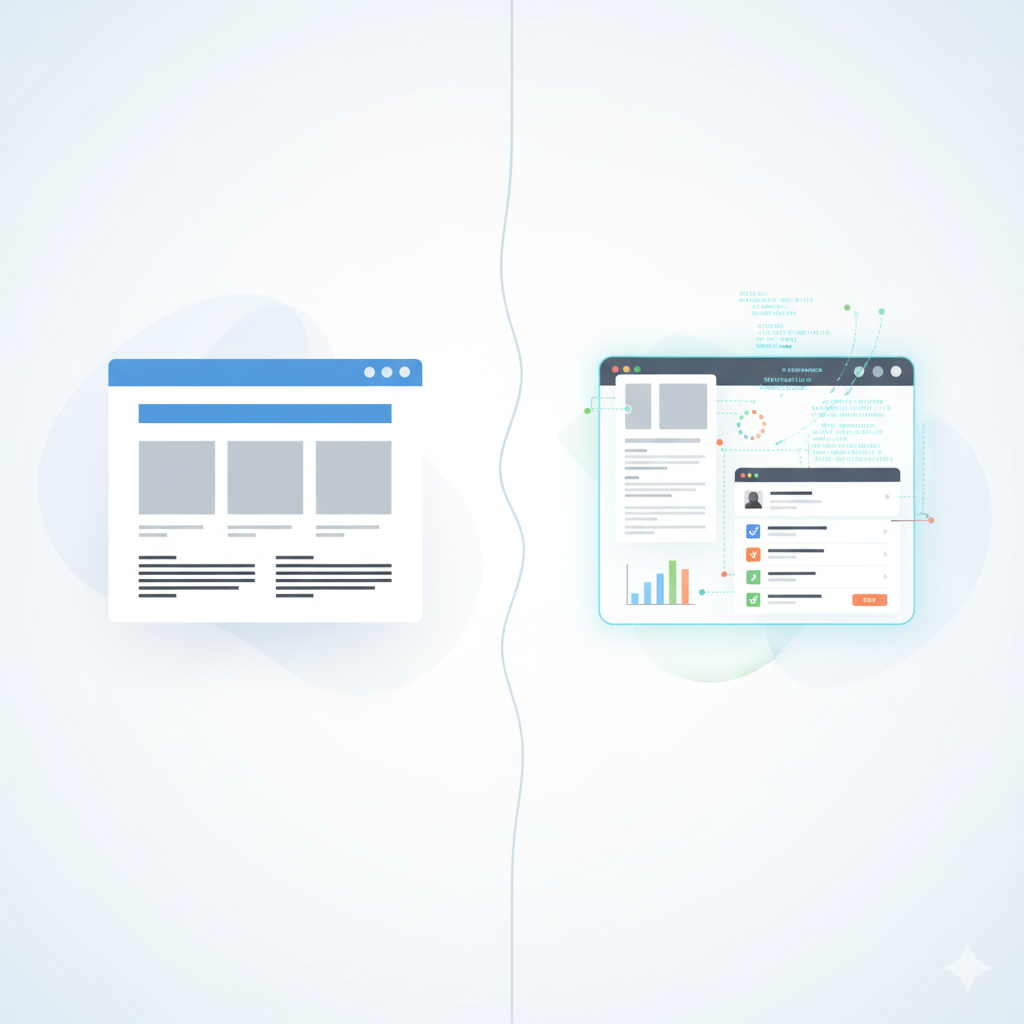When it comes to building a new website, one of the most common questions business owners face is:
“Should I go for a static or a dynamic website?”
Both have their strengths, and choosing the right one depends on your goals, budget, and how you plan to use your site.
Let’s break it down in simple terms.
What Is a Static Website?
A static website is made up of fixed pages where the content stays the same for every visitor.
Each page is a separate file, and if you want to change something such as text or an image, you must edit the code manually.
Example:
Portfolio websites, landing pages, small company profiles, or event pages.
Pros:
- Very fast loading speed because there is no database or server processing.
- Highly secure since it does not rely on a CMS or external plugins.
- Low maintenance cost because updates are rarely needed.
- Good for SEO since search engines can easily read and index static pages.
Cons:
- Content updates require manual editing of the code.
- Not suitable for websites that need frequent content changes such as blogs or product listings.
In short:
Static websites are ideal for small businesses that want a simple, fast, and affordable online presence.
What Is a Dynamic Website?
A dynamic website is designed to handle data and user interactions.
It retrieves information from a database, which allows the content to change automatically without modifying the code.
Example:
E-commerce stores, blogs, membership platforms, or dashboards.
Pros:
- Easier content management through a CMS like WordPress, allowing you to update text, images, or products quickly.
- Scalable and flexible, suitable for growing businesses.
- Supports personalized experiences where different users can see different content.
- Allows interactive features such as contact forms, search tools, or user accounts.
Cons:
- Can be slightly slower than static websites depending on optimization.
- Requires ongoing updates for plugins and security.
- Usually has a higher setup cost compared to static websites.
In short:
Dynamic websites are best for businesses that plan to post new content, sell products, or provide interactive experiences for their visitors.
Quick Comparison
| Feature | Static Website | Dynamic Website |
|---|---|---|
| Speed | Very fast | Depends on setup and optimization |
| Maintenance | Low | Moderate to high |
| Content Updates | Manual | Through CMS |
| Security | Very secure | Requires updates |
| Best for | Portfolios, landing pages, informational sites | Blogs, e-commerce, booking, or interactive sites |
Which One Should You Choose?
If your business only needs a simple, fast, and budget friendly site, a static website is the right choice.
It provides reliability and quick performance without much maintenance.
However, if you want a website that can grow with your business, supports blog posts, user accounts, or product management, then a dynamic website is a smarter long term investment.
My Advice as a Developer
I have helped businesses launch both static and dynamic websites, ranging from small restaurant pages to full e-commerce platforms.
If you are unsure which type fits your goals, I can help you evaluate what makes sense for your business and your budget.
Contact me to discuss your project. I can help you choose the right approach before you invest in development.






